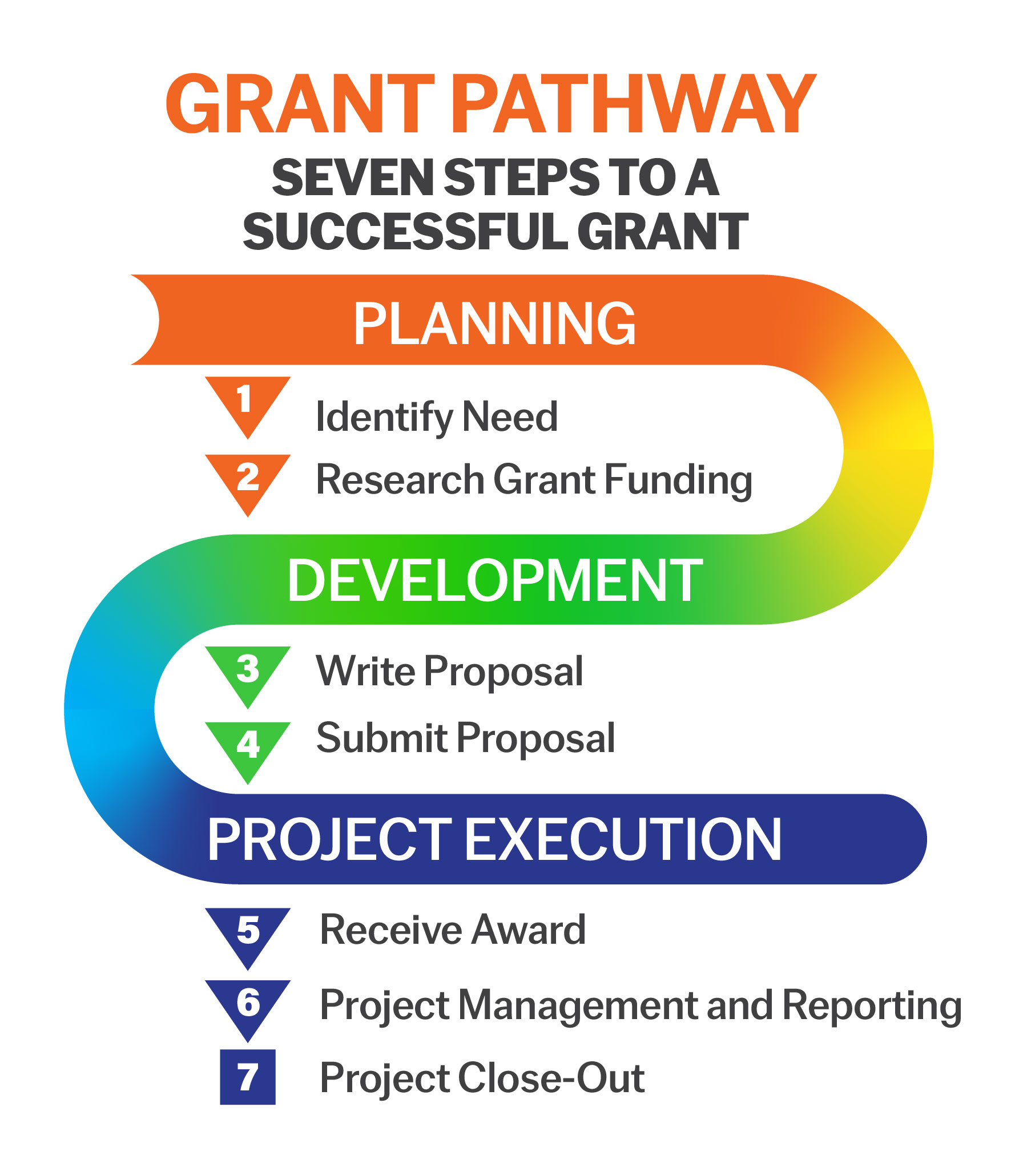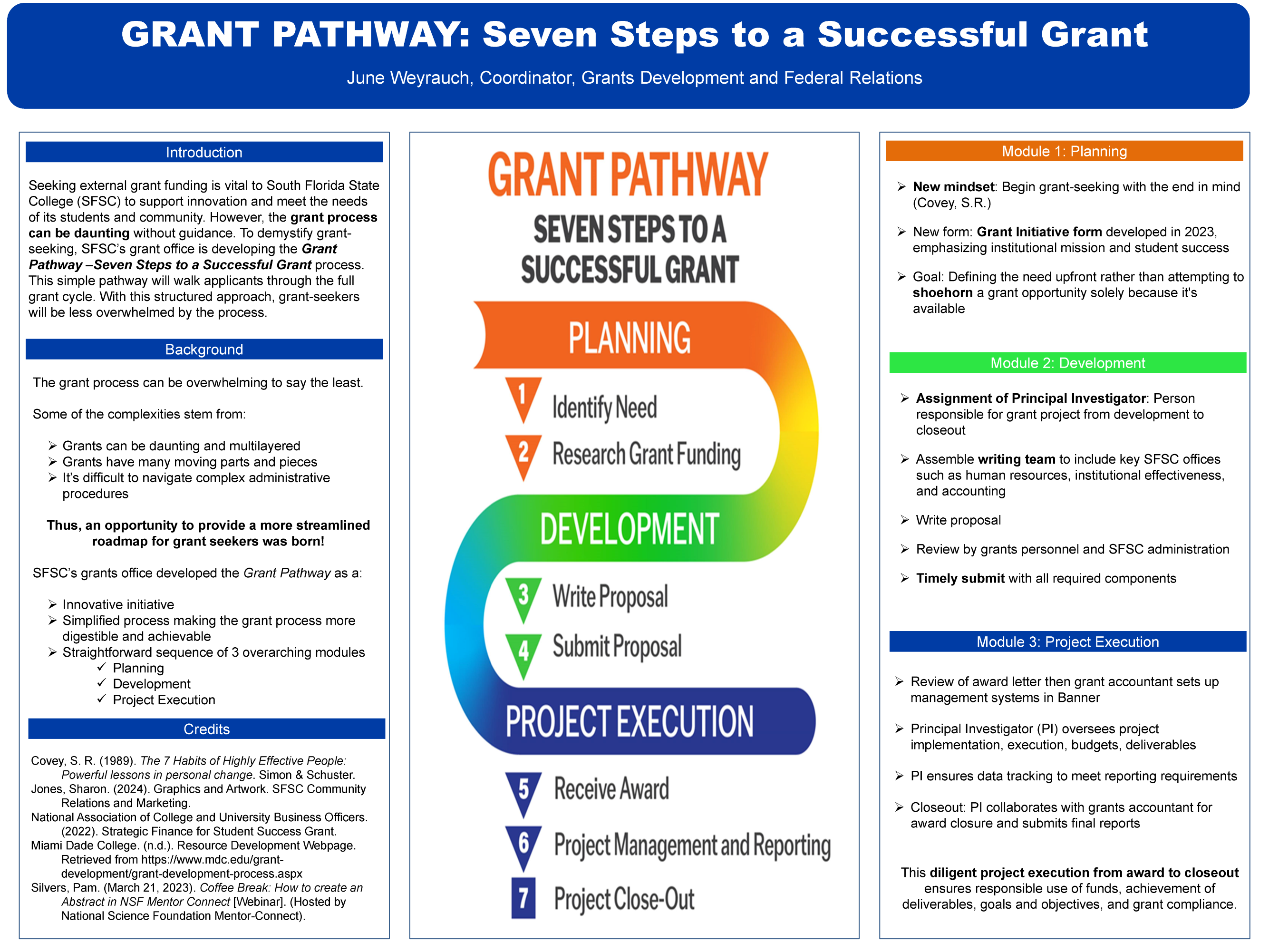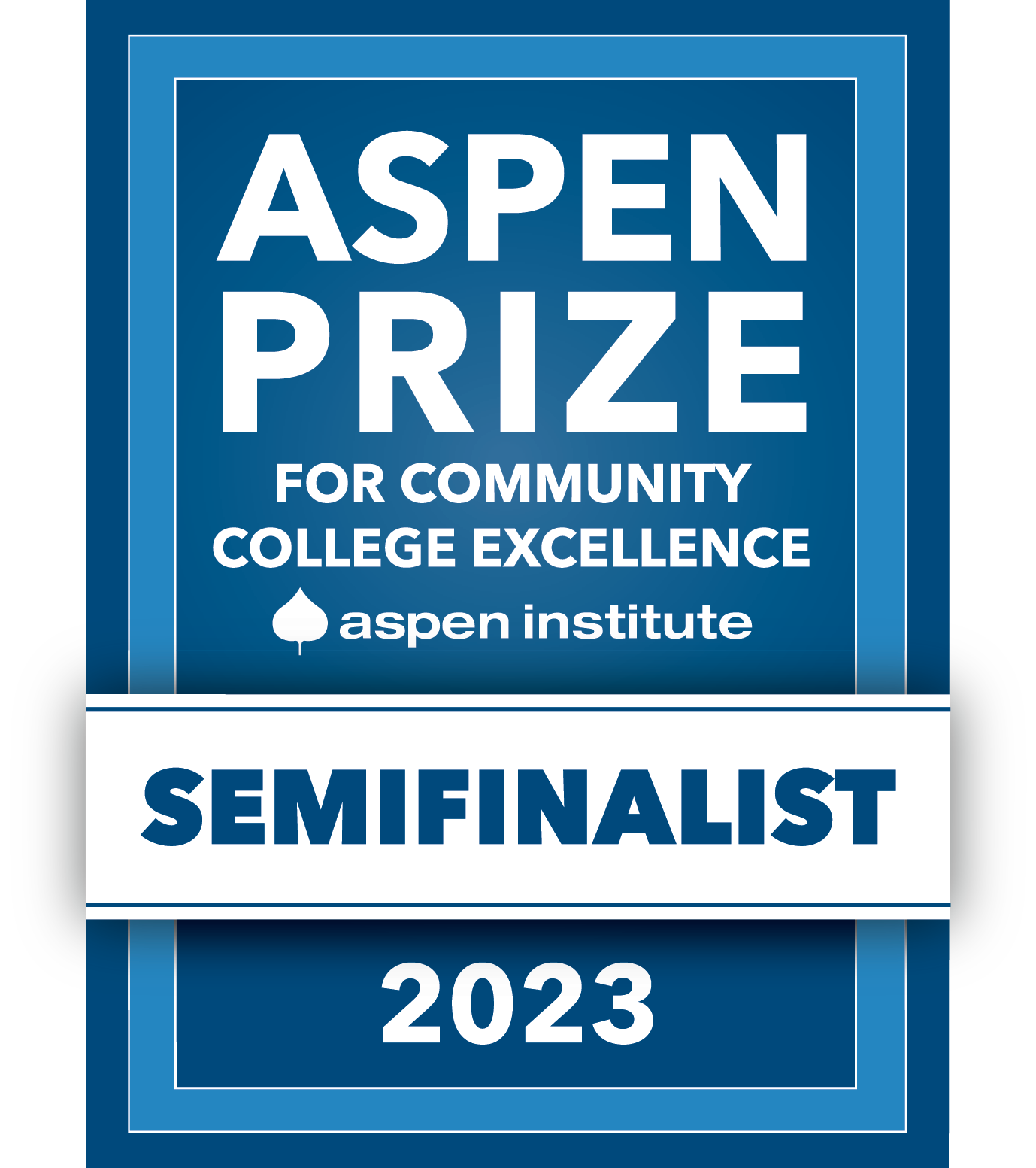Grant Process |
|
| Overview The grant process begins with generating an innovative idea or project that aligns SFSC’s mission with a funding organization’s interests. The next step is researching suitable funding opportunities and sources. Once an appropriate grant is identified, a strong proposal is developed according to the guidelines, with details on the project background, goals, methods, timeline, budget, and expected impacts. The proposal is then submitted by the deadline for consideration. If awarded, there is often a negotiation phase to finalize the award details and set up the required budget in Banner. Throughout the project period, the award must be responsibly managed, including meeting reporting requirements, the assigned Principal Investigator(s) (PI) and Co-PI(s). At the end, the project undergoes closeout which involves submitting final progress and financial reports to demonstrate the successful completion of grant obligations. Overall, navigating each phase of the grant cycle requires strategic planning, communication, and diligent grant management. |
|
| Identify Need | At SFSC, faculty and staff are encouraged to develop grant project ideas that align with the College’s strategic goals and initiatives. Brainstorming focuses on identifying critical needs or problems that can be addressed through innovative programs, research, training, or other activities eligible for grant funding. Once an idea is garnered, the lead should contact the Grants Office for the Grants Initiative form to complete and return. The Grants Office vets the ideas to ensure they are realistic, impactful, and feasible if funded. |
| Research Grant Funding | The SFSC Grants Office researches federal, state, and private grant opportunities that match the projects and priorities outlined on the initiative form. They utilize databases, funder websites, and connections to discover upcoming deadlines and competitive programs to target. The goal is to identify potential funders that are in alignment with SFSC’s mission and grant ideas. Employees are encouraged to share any funding opportunities they are made aware of that align with their initiative. |
| Write Proposal | The Grants Office will establish a Principal Investigator for the grant who will choose a writing team of key players from SFSC that best align with the grant initiative. The PI and the project team will collaborate to follow proposal guidelines and requirements to craft strong applications. This involves working closely with project teams to describe necessary details like goals, approach, timeline, evaluation, budgets, and qualifications. The PI must bring the grants accountant, director of human resources, and a designee from Institutional Effectiveness into the discussions to ensure compliance and accuracy. Drafts are carefully reviewed by the project team before submitting a final draft to the Grants Office, which is then reviewed by the administration. |
| Submit Proposal | All proposals and required supporting documents will be submitted to the Grants Office no later than 10 days before submission deadlines for final review by the grants coordinator, vice presidents, and the College president. The grants coordinator will obtain all required College signatures. Completed proposals and required attachments are submitted through the grantmaker’s application system (via email, online portal, or hard copy mailing) on or before the deadline by the Grants Office unless other arrangements were approved in advance by the Grants Office. The Grants Office ensures all components are included and submitted properly for consideration. |
| Receive Award | When a grant is approved, SFSC must officially accept and negotiate the final award terms. This can involve discussions around budget, modifications, and contractual requirements. The grants accountant and grants coordinator will assist in the post-award setup that involves establishing accounts, reporting procedures, and other systems needed to manage the grant. |
| Project Management and Reporting | The Principal Investigator (PI) of the grant implements the project activities as outlined in the proposal while meeting compliance and reporting obligations. The PI and Co-PIs are ultimately responsible for tracking budgets, tracking progress, collecting data, and submitting required reports to the funder. They ensure the effective use of award funds toward stated goals. Both the grants accountant and the grants coordinator will work closely with the PI and Co-PI to assist in the grant’s success. The grants accountant will also assist in ensuring compliance with all purchases initiated by the grant-funded personnel. The PI is responsible for sharing this information with the related key players, including the Grants Office. |
| Project Close-Out | As the project ends, The PI prepares and submits the final progress, financial, and any other reports as stipulated in the agreement. The grants accountant works closely with the PI and Co-PI to close out the award and related accounts once the funder confirms all requirements were satisfactorily met. |
FAQs
Does my project require approval from the SFSC Institutional Review Board?
If you’re applying for a grant that involves human subjects research, Institutional Review Board (IRB) approval will likely be required. IRB approval ensures that your research respects the rights and safety of participants. Additionally, at SFSC the IRB serves as a vital resource in this process, offering guidance and oversight to uphold ethical standards in biomedical research. Ensuring compliance with IRB regulations not only strengthens the integrity of your research but also fosters trust and accountability within the academic community.
Grant seekers must secure IRB approval before grant submission. To access the SFSC IRB and initiate the approval process for your grant-funded project, please click the box below to visit the IRB webpage for more information and to access the form.
| SFSC IRB |






